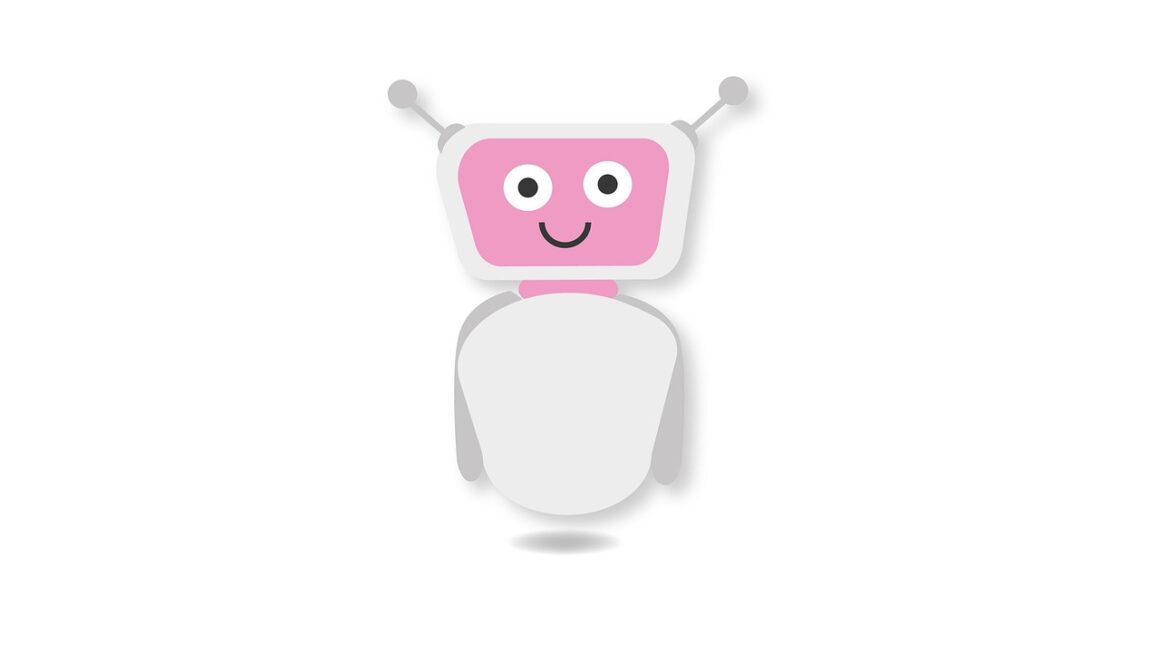The rise of artificial intelligence (AI) is no longer a futuristic fantasy; it’s a present-day reality transforming how we live, work, and interact with technology. AI-powered apps are at the forefront of this revolution, offering unprecedented capabilities and personalized experiences across various industries. From simplifying daily tasks to driving complex business decisions, AI is rapidly reshaping the app landscape, promising a future where technology is smarter, more intuitive, and more efficient. This blog post delves into the exciting world of AI-powered applications, exploring their diverse applications, benefits, and the transformative impact they are having on our lives.
Understanding AI in Apps
What Exactly Are AI-Powered Apps?
AI-powered apps leverage artificial intelligence technologies, such as machine learning, natural language processing (NLP), and computer vision, to perform tasks that typically require human intelligence. These apps learn from data, adapt to user behavior, and make intelligent decisions without explicit programming. Instead of just following predefined rules, AI enables apps to understand context, personalize experiences, and predict future needs.
Key AI Technologies Used in Apps
- Machine Learning (ML): ML algorithms enable apps to learn from data without being explicitly programmed. This allows for tasks like predicting user behavior, recommending products, and detecting anomalies.
- Natural Language Processing (NLP): NLP enables apps to understand and process human language, allowing for tasks like chatbots, voice assistants, and sentiment analysis.
- Computer Vision: Computer vision allows apps to “see” and interpret images and videos, enabling tasks like facial recognition, object detection, and image classification.
- Deep Learning: A subset of machine learning that uses artificial neural networks with multiple layers to analyze data, providing powerful solutions for complex problems like image and speech recognition.
Benefits of Integrating AI into Apps
- Personalized User Experience: AI can analyze user data to provide customized content, recommendations, and features, resulting in a more engaging and satisfying app experience.
- Increased Efficiency: AI can automate repetitive tasks, freeing up human resources for more complex and creative work.
- Improved Decision-Making: AI algorithms can analyze large datasets to identify patterns and insights, leading to better-informed business decisions.
- Enhanced Security: AI can detect and prevent fraudulent activities, identify security threats, and improve overall app security.
- Predictive Capabilities: AI can forecast trends, anticipate user needs, and provide proactive solutions.
AI in Everyday Apps
Productivity and Organization
AI is revolutionizing how we manage our time and tasks.
- Smart Calendars: Apps like Google Calendar use AI to suggest optimal meeting times, automatically schedule appointments, and send reminders.
- AI-Powered Email Management: Apps like Gmail use AI to filter spam, prioritize important messages, and suggest smart replies.
- Note-Taking Apps: Apps like Evernote and Microsoft OneNote can use AI to transcribe audio notes, categorize handwritten notes, and even suggest relevant content based on your notes. For instance, Evernote’s context feature uses machine learning to provide relevant articles and notes based on what you’re currently writing.
Entertainment and Media
AI enhances our entertainment experiences.
- Music Streaming Services: Apps like Spotify and Apple Music use AI-powered recommendation algorithms to suggest personalized playlists and discover new artists based on your listening habits. For example, Spotify’s “Discover Weekly” playlist is entirely generated by AI, providing a tailored music selection each week.
- Video Streaming Platforms: Netflix and YouTube leverage AI to recommend movies and videos based on your viewing history, ensuring you always have something interesting to watch. They analyze viewing patterns to predict what you might enjoy.
- AI-Powered Photo and Video Editing: Apps like Adobe Photoshop and CapCut utilize AI to automatically enhance photos and videos, remove backgrounds, and add special effects.
Health and Fitness
AI is making healthcare more accessible and personalized.
- Fitness Trackers: Apps like Fitbit and Apple Health use AI to analyze your activity levels, sleep patterns, and dietary habits to provide personalized fitness recommendations.
- Medical Diagnosis: AI-powered apps are being developed to assist doctors in diagnosing diseases, analyzing medical images, and recommending treatment plans. For example, AI can analyze X-rays to detect early signs of cancer with greater accuracy than human doctors in some cases.
- Mental Health Support: Apps like Woebot and Talkspace use AI-powered chatbots to provide mental health support, offering personalized guidance and coping strategies.
AI in Business Applications
Customer Service
AI chatbots are transforming customer service interactions.
- Automated Customer Support: AI chatbots can handle routine customer inquiries, provide instant answers, and resolve common issues, freeing up human agents to focus on more complex problems. Many e-commerce websites use AI chatbots to answer FAQs and guide customers through the purchase process.
- Personalized Recommendations: AI can analyze customer data to provide personalized product recommendations, offers, and promotions, increasing sales and customer loyalty.
- Sentiment Analysis: AI can analyze customer feedback from social media, surveys, and reviews to understand customer sentiment and identify areas for improvement.
Marketing and Sales
AI is optimizing marketing campaigns and boosting sales.
- Predictive Analytics: AI can analyze sales data to predict future sales trends, identify potential customers, and optimize marketing campaigns.
- Targeted Advertising: AI-powered advertising platforms can target ads to specific demographics, interests, and behaviors, improving ad effectiveness and ROI.
- Lead Generation: AI can identify and qualify potential leads based on their online behavior, interests, and demographics, helping sales teams focus on the most promising prospects.
Data Analysis and Business Intelligence
AI is transforming how businesses analyze data and make decisions.
- Automated Data Processing: AI can automate the process of cleaning, transforming, and analyzing large datasets, saving time and resources.
- Business Intelligence: AI-powered business intelligence platforms can provide insights into key performance indicators (KPIs), identify trends, and support data-driven decision-making.
- Fraud Detection: AI algorithms can detect fraudulent transactions, identify suspicious patterns, and prevent financial losses.
Developing AI-Powered Apps
Choosing the Right AI Technologies
Selecting the right AI technologies is crucial for successful app development.
- Define your app’s goals: Clearly define what you want your AI-powered app to achieve. What problem are you trying to solve? What features will the AI enable?
- Consider your data availability: AI algorithms require data to learn and improve. Ensure you have access to sufficient data to train your AI models.
- Evaluate your technical resources: AI development requires specialized skills and expertise. Consider whether you have the in-house resources or need to outsource to a specialized AI development company.
Key Steps in AI App Development
- Data Collection and Preparation: Gather and clean the data that will be used to train the AI models.
- Model Training and Evaluation: Train the AI models using the prepared data and evaluate their performance.
- App Integration: Integrate the trained AI models into the app, ensuring seamless user experience.
- Testing and Deployment: Thoroughly test the app to ensure it functions correctly and deploy it to the app stores.
- Continuous Improvement: Monitor the app’s performance and continuously improve the AI models based on user feedback and new data.
Popular AI Development Platforms
- TensorFlow: An open-source machine learning framework developed by Google.
- PyTorch: Another popular open-source machine learning framework, known for its flexibility and ease of use.
- Microsoft Azure AI: A suite of AI services provided by Microsoft, including machine learning, computer vision, and NLP.
- Amazon AI: A collection of AI services offered by Amazon Web Services (AWS), including machine learning, natural language processing, and image recognition.
Challenges and Future Trends
Addressing Ethical Considerations
- Data Privacy: Ensuring the privacy and security of user data is paramount.
- Bias Mitigation: AI algorithms can perpetuate biases present in the data they are trained on. It’s crucial to mitigate these biases to ensure fairness and equity.
- Transparency and Explainability: Understanding how AI models make decisions is important for building trust and accountability.
Future Trends in AI-Powered Apps
- Edge AI: Running AI models on edge devices (e.g., smartphones, IoT devices) to reduce latency and improve privacy.
- Generative AI: Creating new content, such as images, videos, and text, using AI models.
- AI-Powered Personal Assistants: More sophisticated and personalized AI assistants that can anticipate your needs and proactively offer assistance.
- Augmented Reality (AR) and AI Integration: Combining AR and AI to create immersive and interactive experiences.
Conclusion
AI-powered apps are rapidly transforming the technological landscape, offering unprecedented capabilities and personalized experiences across a wide range of industries. From streamlining daily tasks to driving complex business decisions, AI is empowering users and organizations to achieve more than ever before. As AI technology continues to advance, we can expect to see even more innovative and transformative applications emerge in the years to come. By understanding the fundamentals of AI, exploring its diverse applications, and addressing ethical considerations, we can harness the power of AI to create a smarter, more efficient, and more human-centered future.




